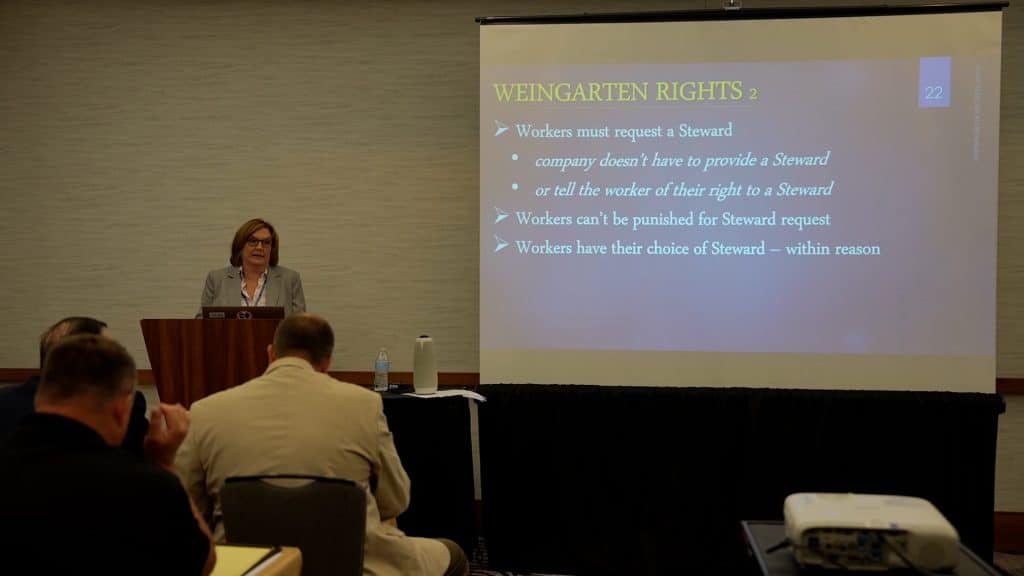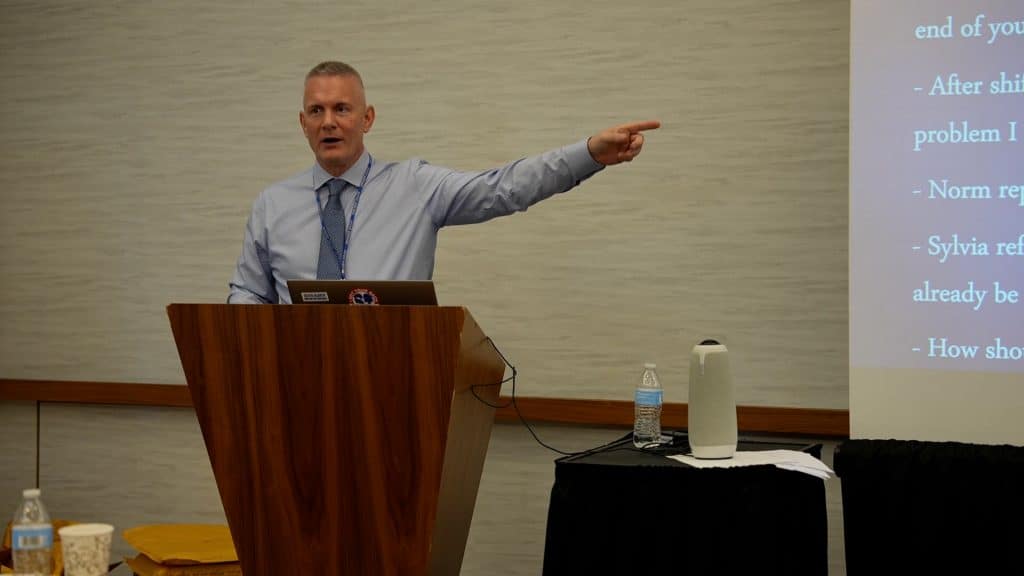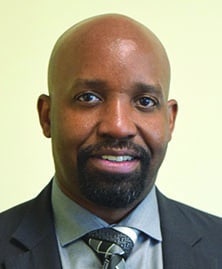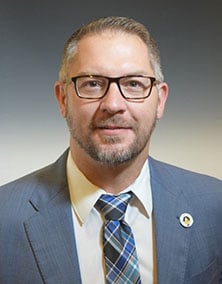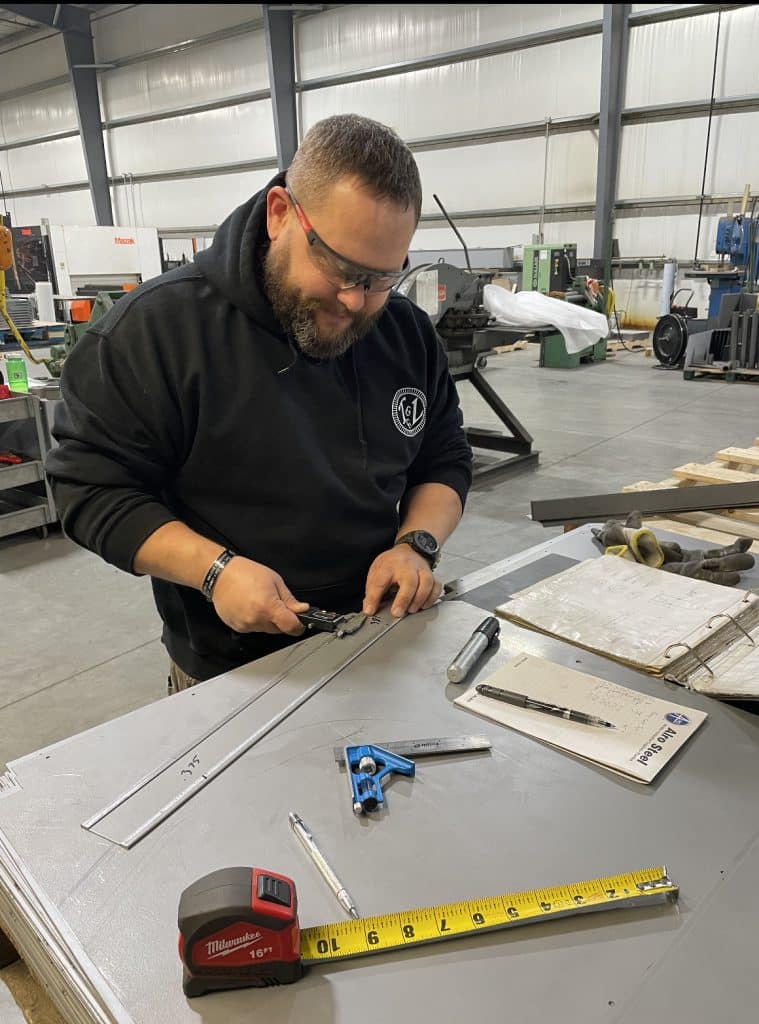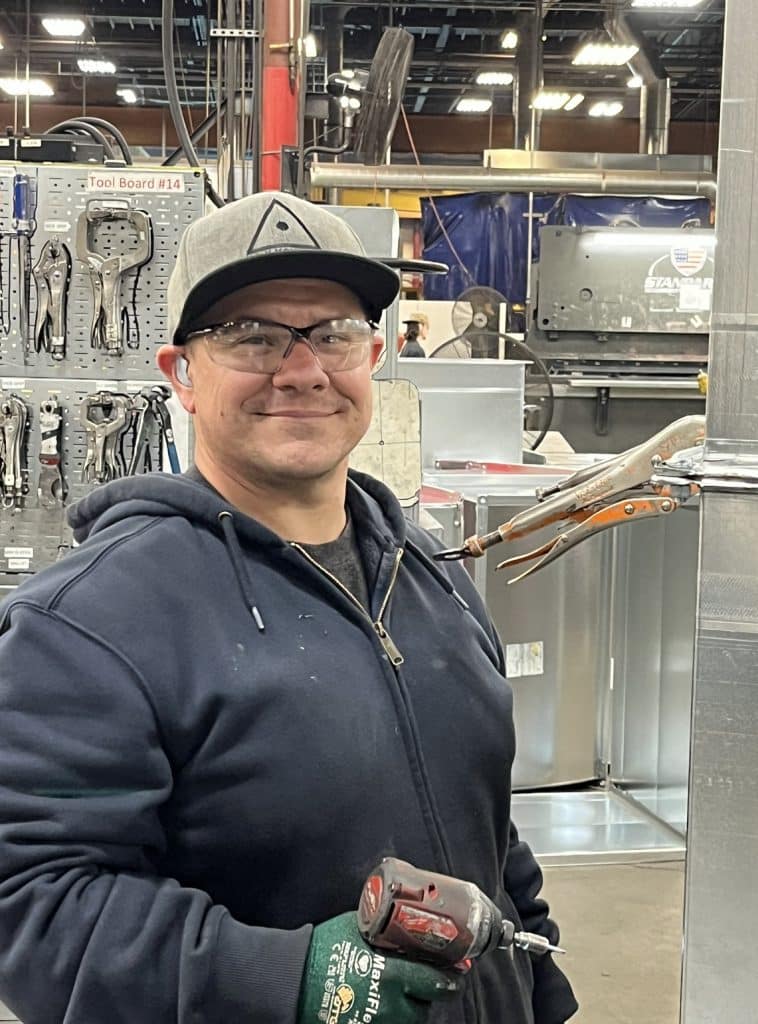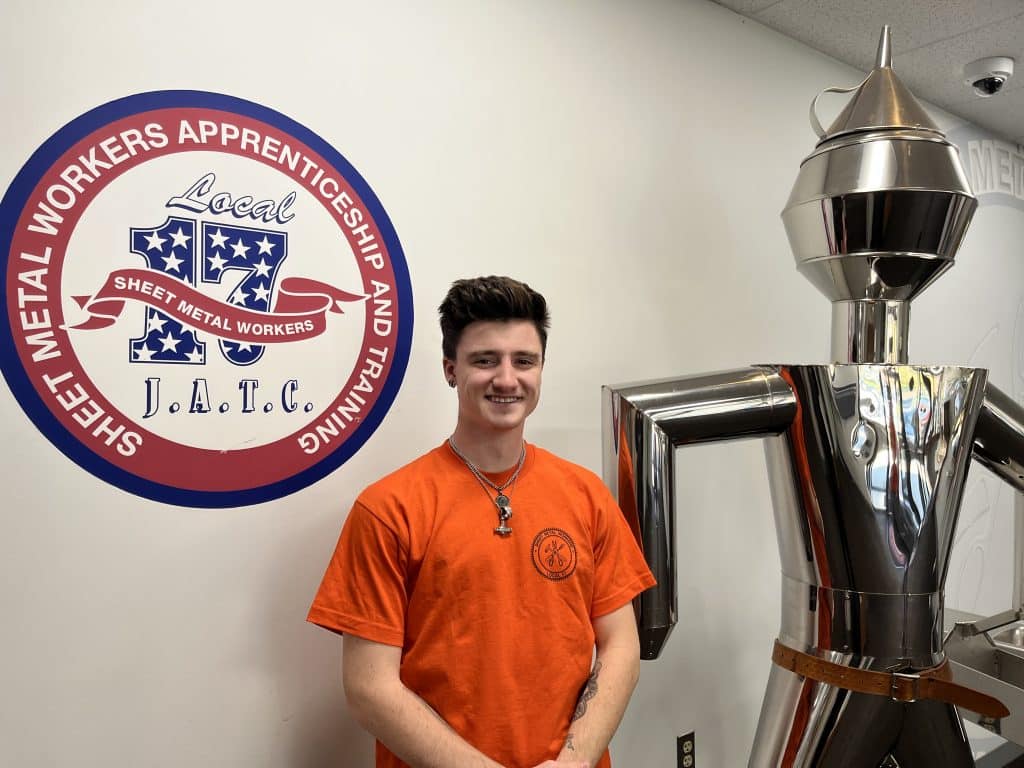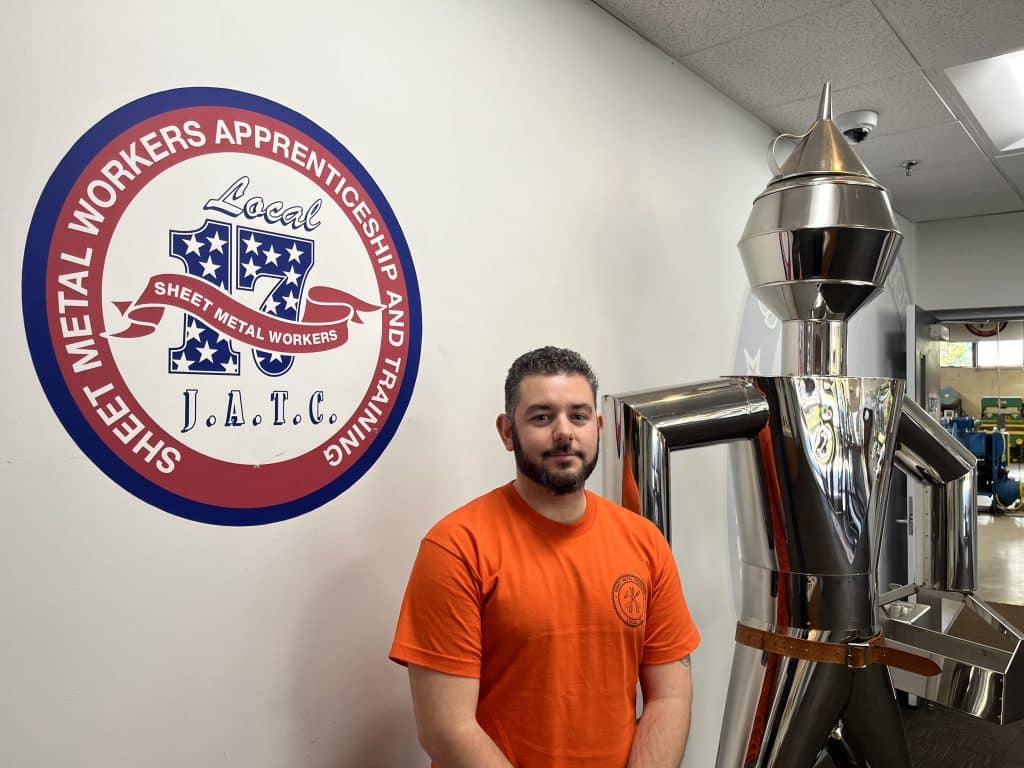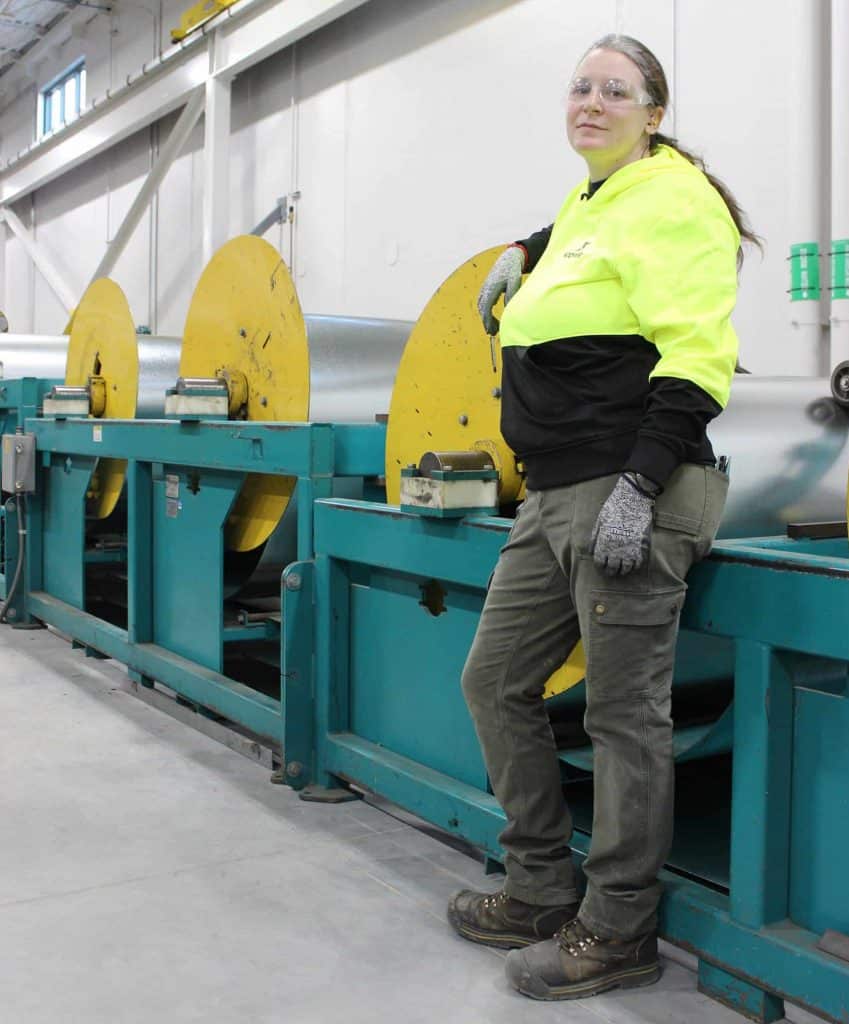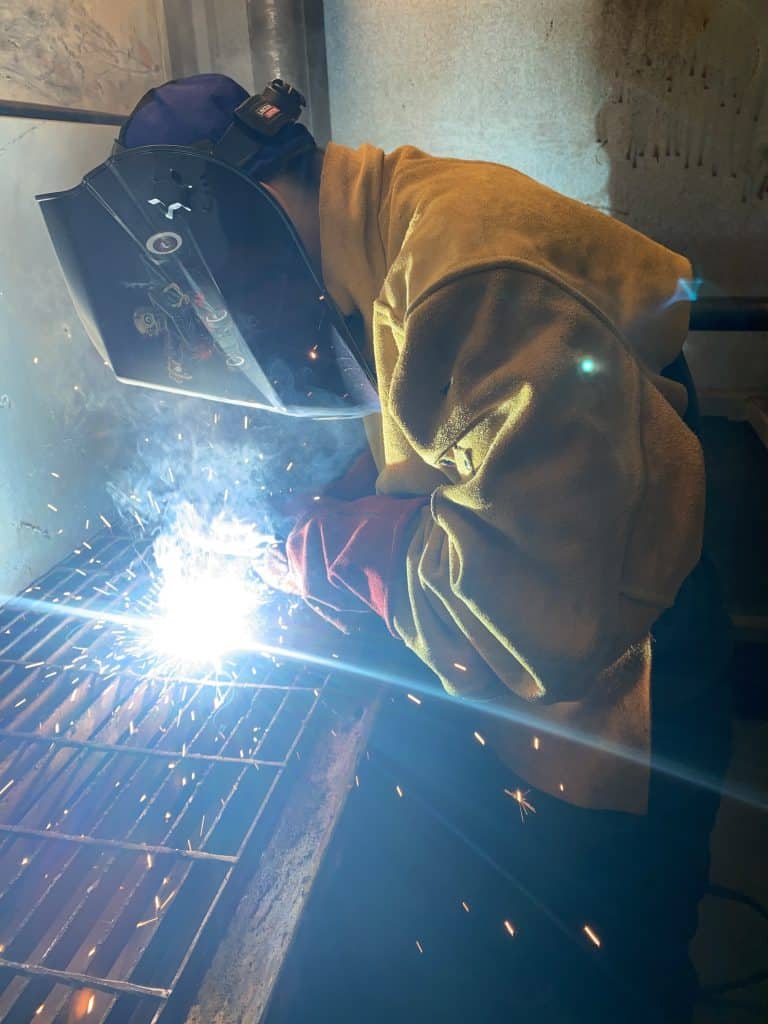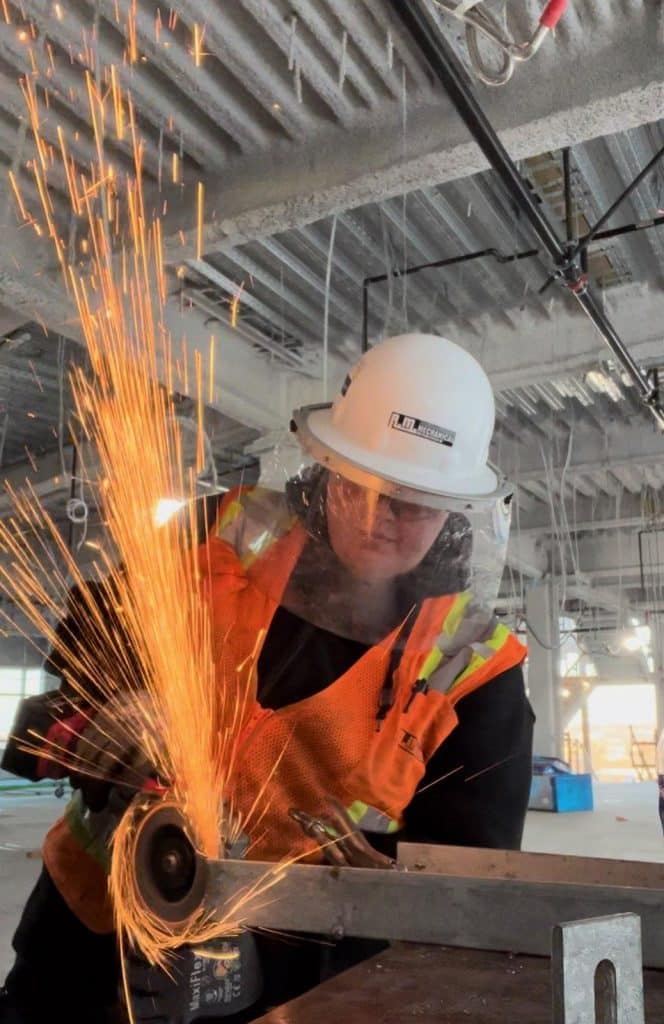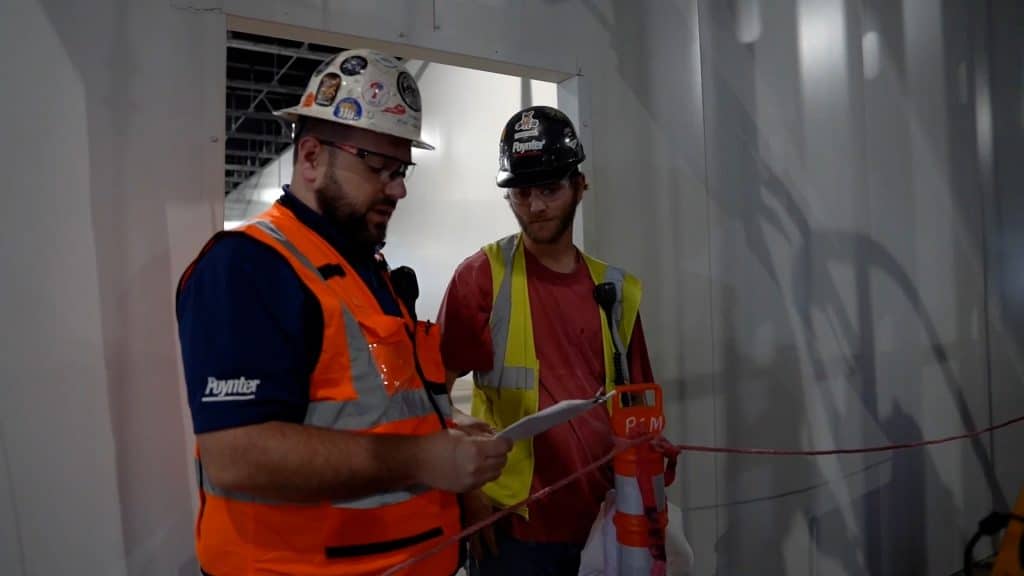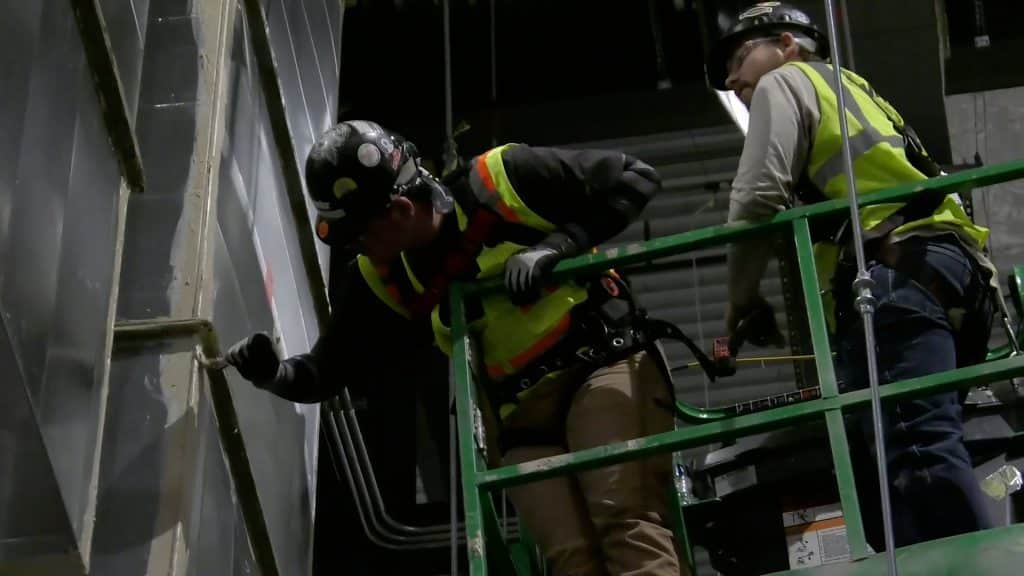On September 15, 2023, members of the United Automobile Workers (UAW) working for the “Big Three” vehicle manufacturers — Ford, General Motors and Stellantis (formerly Chrysler) — began their “stand up” strike, the first simultaneous strike against all Big Three companies in history. In the months following, SMART members across industry, craft and trade hit the picket line to stand with our UAW union siblings in their fight for better pay, working conditions and an economy that works for the working class.
Members of SMART-TD Local 278 (Jackson, Mich.) and General Committee GO 687 walked the line in Detroit, heart of the auto industry, on September 20: supporting the UAW Local 900 members outside of Ford’s Michigan Assembly Plant. TD members showed up on the strike’s first day, then again four days later to deliver bottled water and to show support, Local 278 Legislative Representative Tom Dillon said.
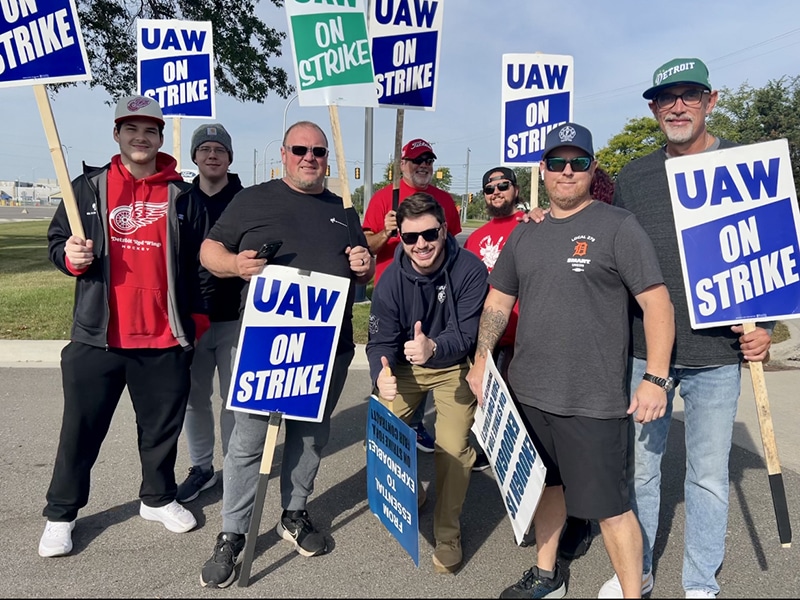
“A common conversation I had with most UAW workers both days was that this fight wasn’t just for them. It was for all of us … all of us working, middle-class people trying to live a great life. A life that our parents enjoyed through the fruits of their labor,” he said.
In Missouri, meanwhile, Local 36 (St. Louis) members were on the line day and night — working the grill to keep UAW Local 2250 strikers well-fed, then picketing alongside UAW members after sunset.
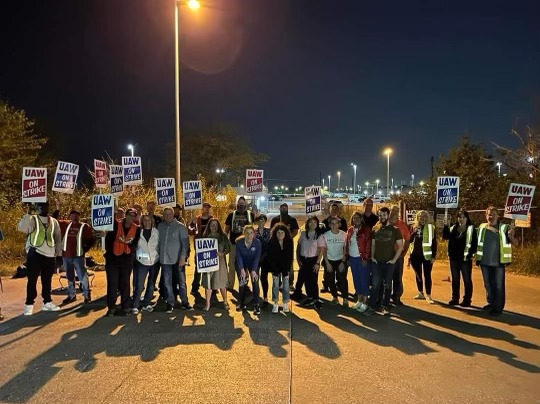
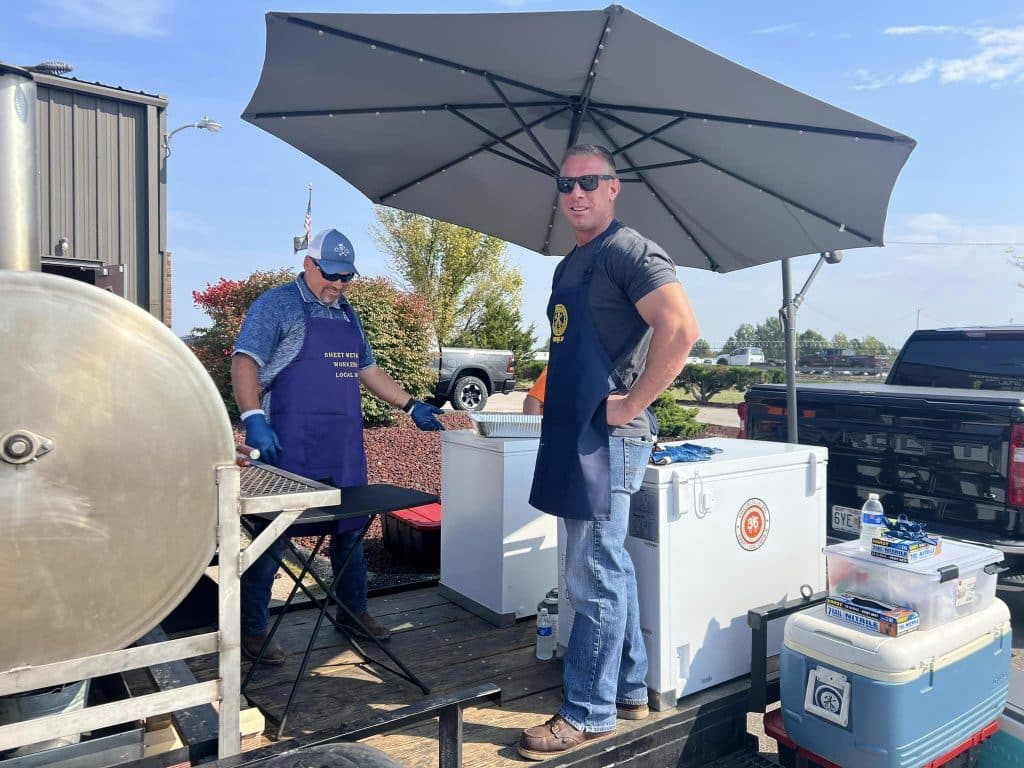
And during the SMART Transportation Division’s October Regional Training Seminar in Toledo, Ohio, SMART-TD President Jeremy Ferguson and other leaders were shoulder-to-shoulder with Toledo UAW Local 12, from Monday the 2nd through Friday the 6th — through rain, shine, day and night.
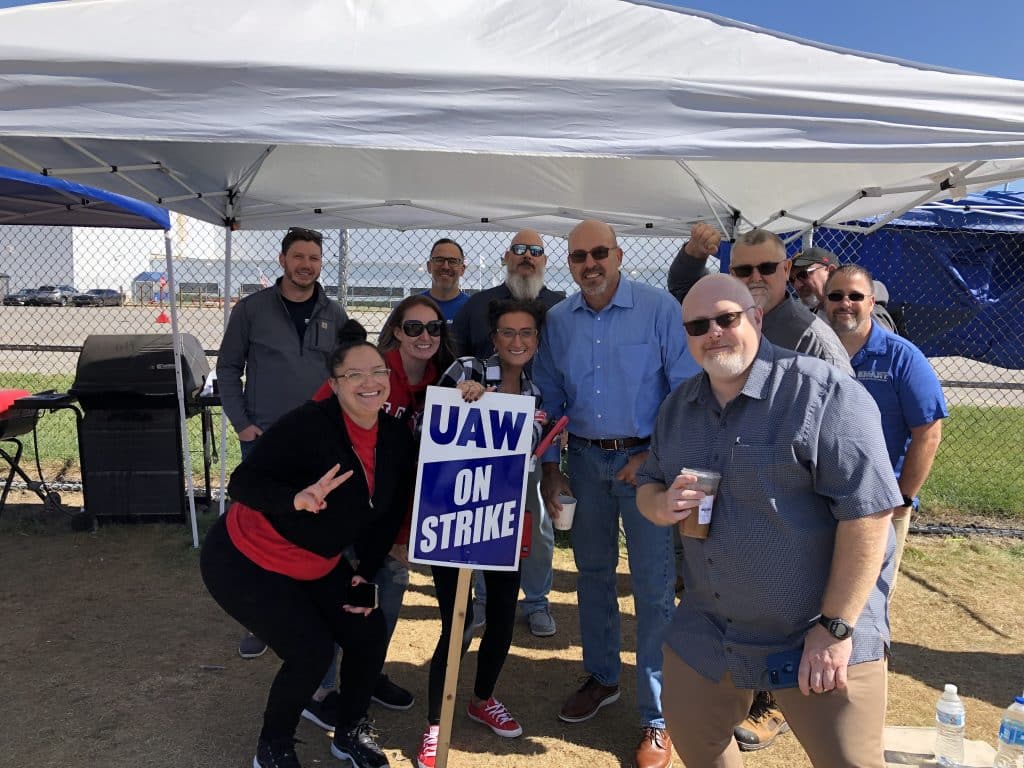
In November, UAW members ratified historic tentative agreements with Ford, Stellantis and GM, bringing the stand up strike to an end.

